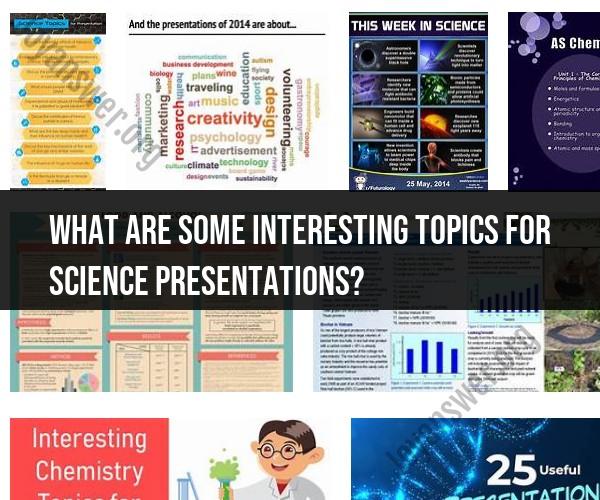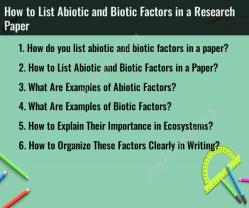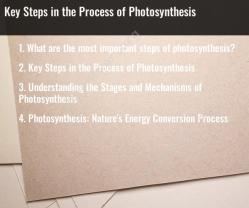What are some interesting topics for science presentations?
Creating an engaging science presentation requires selecting a topic that not only interests you but also captivates your audience. Here are some interesting science presentation topics across various scientific fields that can engage and educate your audience:
Biology:
The Human Microbiome: Explore the fascinating world of microbes living in and on our bodies and their impact on health.
CRISPR-Cas9 Gene Editing: Discuss the revolutionary gene-editing technology and its potential applications in medicine and genetics.
Biodiversity Conservation: Highlight the importance of preserving biodiversity and the efforts to protect endangered species.
Neuroscience and Brain Plasticity: Delve into the brain's ability to change and adapt throughout life.
Chemistry:
Chemistry of Cooking: Explain the chemical reactions that occur during cooking and how they affect the taste and texture of food.
Nanotechnology: Explore the world of nanomaterials and their applications in medicine, electronics, and more.
Green Chemistry: Discuss sustainable and eco-friendly approaches to chemical processes and materials.
Chemistry of Colors: Explore the science behind pigments, dyes, and color changes in various substances.
Physics:
Quantum Mechanics Demystified: Introduce the strange and fascinating world of quantum physics and its implications.
Astrophysics Mysteries: Explore unsolved mysteries of the universe, such as dark matter and dark energy.
The Physics of Superheroes: Discuss how real physics principles relate to the abilities of fictional superheroes.
Renewable Energy Sources: Highlight the science behind renewable energy technologies like solar and wind power.
Astronomy:
Exoplanets and Habitability: Discuss the search for habitable planets beyond our solar system and the possibility of extraterrestrial life.
Black Holes: Explore the properties and mysteries of these celestial objects, including recent discoveries.
Space Exploration: Provide updates on current and future space missions, including Mars exploration and asteroid mining.
Earth Sciences:
Climate Change Science: Present the evidence and causes of climate change and its global impact.
Natural Disasters: Discuss the science behind earthquakes, volcanoes, hurricanes, and other natural disasters.
Geological Time Scale: Explore Earth's history and the major events that shaped our planet.
Environmental Science:
Plastic Pollution: Highlight the environmental impact of plastic waste and potential solutions.
Sustainable Agriculture: Discuss sustainable farming practices and their importance in addressing global food security.
Renewable Energy Transition: Explore the transition from fossil fuels to renewable energy sources and its challenges.
Health and Medicine:
Vaccines and Herd Immunity: Discuss the science of vaccines, herd immunity, and their role in public health.
Cancer Immunotherapy: Explore innovative approaches to treating cancer using the immune system.
Mental Health and Neuroscience: Discuss the neuroscience behind mental health conditions and potential treatments.
Remember to tailor your presentation to your audience's level of knowledge and interest. Use visuals, real-life examples, and engaging storytelling to make your science presentation both informative and captivating.












